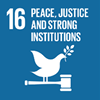Kunal Sen discusses COVID-19 and subnational state capacity in India
Kunal Sen delivers a seminar on key findings from the UNU-WIDER research project COVID-19 and subnational state capacity in India at the School of Development Studies, Ambedkar University in Delhi, India. The project's detailed studies of the interrelationships between state capacity, policy response, and key outcomes during the COVID-19 pandemic across Indian states provide a rare comparative insight into the critical factors that account for an effective state response to emergent crises. The collection of studies Dr. Sen covers in this seminar are the subject of a forthcoming edited volume. They form a part of the research undertaken as a part of The state and statebuilding in the Global South project.
About
During a crisis, the state plays a crucial role in responding the needs of the citizens and non-citizens within its borders, particularly with respect to needs that would impact their public health and socioeconomic wellbeing. In response to the COVID-19 pandemic, there is a growing body of research that focuses on the role and diverse capacities of national state institutions in this regard (e.g., Ang, 2020; Fukuyama, 2020; Gisselquist & Vaccaro, 2022; Mao, 2021; Patterson & Balogun, 2021). Much less research attention has been paid the role of the state at the subnational level (with some key exceptions, e.g., Basu & Mazumder, 2021; Imai, Kaicker, & Gaiha, 2021; Kujur & Goswami, 2020). However, in many countries, subnational state institutions clearly played a significant role in the pandemic response.
This research collection addresses this research gap through a focused consideration of COVID-19’s impact and subsequent policy response in India, at the level of states and union territories. It adopts a nested analysis approach, combining quantitative analysis of available data across India’s states with five in-depth state-level case studies.
Building on initial quantitative analysis, five states were identified for an in-depth study: Bihar, Kerala, Maharashtra, Uttar Pradesh, and West Bengal. Case studies go beyond the numbers to provide a nuanced consideration of the interrelationships between state capacity, policy response, and pandemic outcomes.
In so doing, the work offers new empirical insight into what happened during the first two waves of the pandemic across India’s states, and what this variation and experience tells us about the nature of subnational state institutions. Pandemic response and outcomes have continued to evolve, but this early period of the pandemic offers an important snapshot into the functioning of states in crisis, at all levels, and in environments of limited information.
 Join the network
Join the network